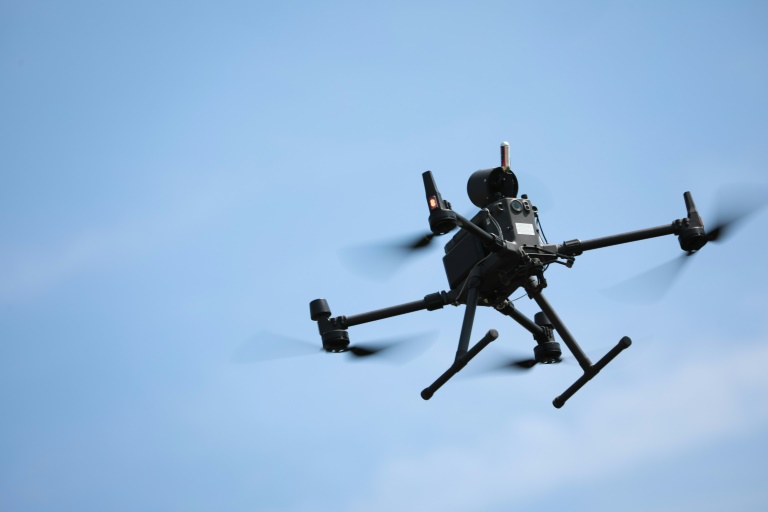Elemind is launching a neurotech wellness headband that improves your sleep by using neurotechnology to let you fall asleep on demand.
The novel neurotechnology headband improves your sleep performance by directing brainwaves out of wakeful patterns and into a deeper sleep, on-demand. In a clinical trial, Elemind‘s wearable shortened time to fall asleep in 76% of study participants, by an average of 48% faster and up to 74% faster.
It sounds too good to be true to send sound waves into your head that will make you fall asleep when you want to. But the technology is backed by five years of research, testing and clinical trials, said Meredith Perry, CEO of Elemind, in an interview with VentureBeat/GamesBeat.
“It is wearable neurotechnology that achieves the same effects as pharmaceuticals, but without the side effects,” she said. “And today, we’re announcing our first product category, which is sleep. Why sleep? Sleep is connected to every aspect of health, and nothing improves individual performance as much as quality sleep. But 80% of adults worldwide report that they needed to improve their sleep.”
Lil Snack & GamesBeat
GamesBeat is excited to partner with Lil Snack to have customized games just for our audience! We know as gamers ourselves, this is an exciting way to engage through play with the GamesBeat content you have already come to love. Start playing games now!
Three months ago, the company emerged from stealth after four years of quietly building a new paradigm for health and wellness, which the company calls electric medicine, said Perry.
Essentially, the technology reads and responds to individual brainwaves in real-time for a smart, personalized and natural approach to sleep optimization. There are a wide variety of people who would be enthusiastic about this device. Those with insomnia, parents with newborn babies, frequent travelers, students studying for finals and those who are awakened by noises or snoring.
Sleep innovation

There are more than $100 billion worth of sleep products on the market today. While most adults want to improve their sleep quality, none of those products truly address a pervasive consumer need in sleep: control, Perry said. In fact, 68% of adults say they have trouble falling asleep.
At its core, Elemind has figured out how to predict what brain waves will come through your head, like whether you might feel a brain tremor. And Elemind figured out tones to play — sounds that could be considered music — to counter the brain waves, particularly those that might disrupt your sleep or make you feel sharp pain, said CTO David Wang, in an earlier interview.
“The truth is, all of these products are focused on creating better sleeping environments, or better sleep routines, tracking sleep, analyzing sleep, eating sleep, or masking sleep problems and simply knocking you out which can leave you feeling groggy and addicted to some sort of substance that you’re not really interested in being addicted to,” Perry said. “There is nothing on the market today to give us what we truly want and need when it comes to sleep. And that’s control. Until today. So welcome to high performance sleep on demand with Elemind.”
The company’s wearable neurotechnology reads individual brainwaves and guides them in real-time by responding with tailored sound stimulation. Precision guidance of brainwaves changes behavior in a smarter, more targeted and natural way than pharmaceuticals.
“Through Elemind’s patented algorithm and neurotech, users will have the breakthrough ability to “start and restart sleep”, giving them more control over their sleep, and ultimately their daily performance,” said Perry. “Elemind works like noise-cancellation for the brain. You can switch off the world, switch off the stress, and go to sleep faster.“
“Sleep is initiated by the brain, but very little innovation in sleep focuses on the brain directly. That’s where Elemind comes in and why we’re pioneering wearable neurostimulation that can rapidly and accurately measure EEG brain signals and deliver precise acoustic waves, to move the brain from wakeful patterns into a deeper sleep,” said Ryan Neely, a doctor and VP of Science and Research at Elemind, in a statement.
While traditional sleep drugs can affect brainwaves, they don’t operate in real-time, nor in highly targeted ways. Elemind is designed to work as fast as leading sleep drugs, but naturally, drug-free, and without next-day side effects.
“With Elemind, you can start and restart sleep on demand and fall asleep up to 74% faster than normal. Elemind is clinically proven to help you fall asleep as fast as the leading sleep drugs, but without any chemicals or side effects. This means that sleep is more efficient. And sleep can come naturally with no pharmaceutical side effects or dependencies. And sleep is finally within your control.”
How it works

As a non-invasive sensor embedded in the headband, Elemind reads your brainwaves through your skin. Then the creators figured out how to modulate electrical signals to the brain through non-invasive stimulation. It doesn’t require surgery. You’re essentially sending sound waves through your mind. Because of that, the company doesn’t need Food & Drug Administration approval for the sleep treatment, as it’s just using sound stimulation.
Beyond giving you better sleep, they discovered there are a variety of benefits that the treatment can deliver. The first task they took on was suppressing tremors for people with essential tremor. That led to the genesis of the algorithm which allows them to manipulate brainwaves or change the brain by brainwave manipulation from the outset, Perry said.
Unlike other sleep wearables on the market today that only track or analyze sleep, Elemind actively helps the brain go to sleep, and optimizes time asleep, simply by wearing the headband and starting a sleep session.
“We use our breakthrough algorithm and neurotechnology to read and instantly respond to your individual brainwaves. It works naturally to direct your brain out of wakeful patterns into restful patterns. So when you’re alert, your brainwaves are naturally high frequency alpha brainwaves. When you’re asleep or when you fall asleep, your brainwaves will start to slow down and go into theta and then delta brainwaves. We effectively push your brain into sleep faster by disrupting your brainwaves, slowing your brain down, or slowing those brainwaves down and inducing sleep faster.”
The company uses precise acoustic neurostimulation (soundwaves) tailored in real time to your brain’s natural rhythms. As noted earlier, you fall asleep fast up to 74% faster than normal, she said.
“It’s like noise cancellation for the brain. You can switch off the world and switch off the stress because with Elemind you can actively drive your brain from an awake state to a sleep state,” she said.
The finished product

The headband has EEG electrodes woven into the fabric. In the center is a bone conduction transducer, which transmits the sound into your brain.
Most of it is foam, and it feels like an eye mask for your forehead, Perry said. You can adjust it in the back, start your sleep session, and use a Bluetooth-connected smartphone app if you wish. But you can start sleep just by double-tapping on the action button on the headband. If you can wake up in the middle of the night, you can get back to sleep faster by tapping the button. You can wear it with a CPAP machine (for stopping snoring) easily.
The product is not meant to stop you from waking up. If you need to wake up, it doesn’t prevent that from happening. It can be normal to wake up in the middle of the night. Rather, if you wake up and want to go back to sleep, you simply double-tap the button again to make that happen.
“We did not release this product until everybody felt amazing going to sleep in this every single night,” Perry said.
It could do a lot of good. If you don’t get enough sleep, your immune system suffers, your mental performance suffers, your emotional regulation suffers. And when you do have sleep, the opposite is true, Perry said.
Comfortable form factor

The Elemind headband features cutting-edge neuromodulation technology, packed into a headband that is comfortable to wear, no matter the sleeping position. The headband is soft, flexible, lightweight, and can be worn at night or during a nap to safely start and restart sleep.
The hardware pairs with a smartphone application which allows for increased customization and analytics, but is not required to start a session after initial setup. Elemind’s app experience is designed to provide advanced sleep data and analytics, rolling out over the next few months during the beta launch and beyond: overall sleep performance, duration, efficiency, time to fall asleep, time spent in each stage of sleep, and movement throughout the night.
Elemind’s emerging AI Sleep Tailor feature makes the system more effective over time, based on individual sleep patterns, brain activity, and user feedback. Elemind’s Deep Sleep Stimulation Feature, neurostimulation designed to boost time spent in deep sleep and enhance sleep quality, will roll out via a firmware update later this year. The headband has an all-night battery life and can be charged during the day with a USB-C cable.
Clinical trials and research

The team behind Cambridge, Massachusetts-based Elemind comprises scientists and doctors associated with prestigious research institutions, including the Massachusetts Institute of Technology (MIT), Imperial College London, Harvard Medical School, and the University of California at Berkeley.
“Brainwaves determine our sleep cycles, along with so many other physical and emotional states. We’ve been measuring brainwaves with EEG for 100 years, it’s actually the 100th anniversary of EEG,” Perry said.
About five years ago, a team of MIT neuroscientists created an algorithm that allows Elemind to both measure brainwaves and instantly respond to them to direct them in ways that enhance health. Elemind patented that algorithm and scientists around the world have been experimenting with art technology to augment and improve pain, memory, attention, suppress tremor, induced sleep, and more, Perry said.
The founders include Ed Boyden, a neurotechnology professor at MIT and pioneer in the field of optogenetics; David Wang, who has a doctorate in AI from MIT and is CTO of Elemind; Ryan Neely, a doctor of neuroscience from the University of California Berkeley; Nir Grossman, an assistant neuroscience professor at Imperial College London; and Heather Read, a professor of behavioral neuroscience & biomedical engineering at the University of Connecticut.
Elemind’s neurostimulation technology is backed by five clinical studies (two of which focused on sleep) and seven patents (three granted, four pending). In the sleep trials, the company tested 112 different subjects, accounting for 876 nights of sleep and 96 naps. The trials focused on inducing sleep, suppressing physical tremors, boosting memory, and increasing pain thresholds.
During the last 4.5 years, the company iterated through seven different prototypes until the best combination of comfort and excellence was achieved, Perry said. The company spent over $10 million on two clinical trials on sleep and registered for seven patents to create the finished product.
Elemind’s neurotech sleep wearable is a general wellness device, not a medical device, and is intended for maintaining and encouraging a healthy lifestyle.
The company’s recent close of its $12 million seed round, including funding by Village Global and LDV Partners, propelled development of its debut product. The sleep headband is the first product as the company continues development across other health and wellness use cases.
The team and its research partners have published multiple studies proving the efficacy of the science and technology in peer-reviewed journals including Nature Communications.
Elemind is a neurotech health company that exists to elevate health — arming every human with smarter, more targeted, and more personalized options to treat problems and optimize wellness. The company is pioneering “electric medicine,” which uses non-invasive, wearable neurotech to monitor and address issues in real-time with a breakthrough algorithm that reads and instantly responds to individual brainwaves.
Beta program

Elemind launched an exclusive beta program for early adopters to try Elemind’s technology first. During the beta pre-sales period, purchasers of the Elemind headband receive a free 12-month membership, exclusive to early buyers.
While in beta, the company will roll out new app features, allowing beta customers to be the first to have access and provide feedback. Customers can sign up here. The product will ship later this year and cost $349 during the beta test. A subscription will cost $6.99 a month, and Elemind may be able to ship new products based on the same tech.
All of this is not bad for a company with a team of 13. Indeed, the interesting thing about Elemind: this is simply the first application of the company’s research that can be turned into a wellness product, Perry said.
Perry said, “We’re launching with the sleep application, but over time, your Elemind headband will be capable of so much more. Sleep is like our Tesla Roadster,” a reference to the first car Elon Musk created with an electric motor.
Read original article here







